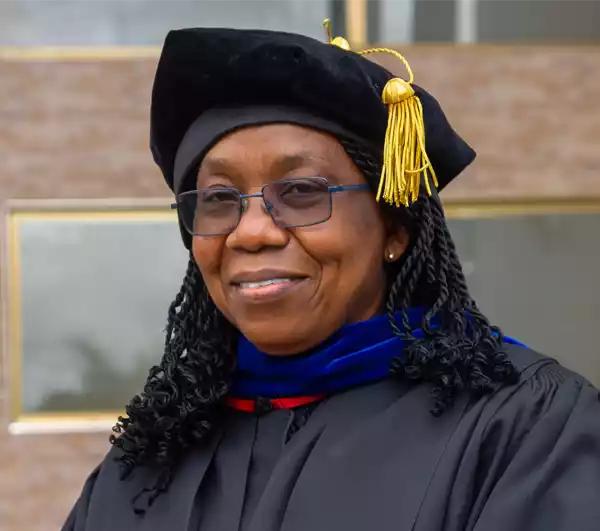
Rev Prof. Dorothy BEA Akoto
(Dip./BA Eng & Edu (UCC) M.A.C.E/MDiv (ITC) MTh (Emory), Mth (UNION_PSCE) PHD (CTS) Chicago)
- Position
Lecturer
Rev. Prof. Dorothy BEA Akoto is a highly esteemed theologian, educator, and ordained minister whose profound influence extends across the realms of theological education and biblical studies. Rooted in a strong academic foundation, her journey began with a Diploma in English from U.C.C., A.T.T.C., Ghana in 1982, followed by a Bachelor of Arts in English and Education from the University of Cape Coast (UCC).
Driven by her passion for teaching and learning, Rev. Prof. Akoto pursued advanced studies in theology, earning a Master of Divinity (MDiv) and a Master of Arts in Christian Education (MACE) from ITC, JCSS, Atlanta, Georgia, U.S.A. in 1996. She further honed her theological acumen with a Master of Theology (MTH) from Emory, Candler School of Theology (E.U. C.S.T.) in Decatur, Georgia, U.S.A. in 1997, and another MTH from UNION-PSCE in Richmond, Virginia, U.S.A. in 2004.
Her academic journey reached its pinnacle with a Doctor of Philosophy (Ph.D.) in Bible, Culture, and Hermeneutics from the esteemed Chicago Theological Seminary (CTS) in Chicago, Illinois, U.S.A. in 2012. Her doctoral research delved deeply into subjects such as Old Testament (Hebrew Bible), Biblical Hebrew Language, and Gender Studies, reflecting her commitment to exploring diverse theological perspectives.
Rev. Prof. Akoto's scholarly pursuits have been guided by her profound research interests, which include Biblical Hermeneutics, Cultural Communication, and the Wisdom Literature of the Hebrew Bible, particularly focusing on Biblical and African Proverbial Communication, as well as Postcolonial and Feminist Biblical Interpretation.
Throughout her illustrious career, Rev. Prof. Akoto has held various academic and leadership positions, including faculty roles at institutions such as the University of Cape Coast and the Institute of Theology, Mission, and Culture. Her commitment to holistic ministry, integrating rigorous scholarship with practical pastoral care, has made her a revered figure within both academic and religious communities.
As an ordained minister, Rev. Prof. Akoto has provided spiritual guidance and pastoral care to congregations, embodying her belief in the integration of academic excellence with compassionate ministry. Her numerous publications and presentations have enriched theological discourse, leaving an indelible mark on the landscape of theological education and biblical studies.
Rev. Prof. Dorothy BEA Akoto continues to inspire and empower individuals to engage critically with scripture, theological issues, and social justice, embodying a profound commitment to academic rigour, spiritual formation, and transformative leadership.
|
_____. “Biblical Interpretation and Post-colonialism: A Hermeneutical Theo-Quake of Grafting.” Journal of Commonwealth and Postcolonial Studies Special Issue: Religion and Postcolonialism 15/1 (Spring, 2008): 5—30. Statesboro, GA: Southern Univ. Dept. of Literature and Philosophy. | |
|
_____. Dell, Katharine J. The Book of Proverbs in Social and Theological Context. Cambridge, New York: Cambridge Univ. Press, 2006). Reviewed in Religion and Biblical Literature/Society of Biblical Literature (RBL/SBL) 09/2008, 5 pp. | |
|
_____. “What if the Woman does not Consent to Follow Me …? Marriage in Genesis 24 Read through the Avatime Kusakorkor Lens.” Journal of Constructive Theology, Gender, Religion and Theology in Africa. 13/2 (2007): 17—42. South Africa: Kwazulu-Natal Center for Constructive Theology. | |
|
_____. “Hearing Scripture in African Contexts: A Hermeneutic of Grafting”, in Journal of Old Testament Essays. (JOTE) 20/2 (2007): 283—306 South Africa: Journal of OT Society (OTSSA). | |
|
_____. “Women and Health in Ghana and the Trokosi Practice: An Issue of Women’s and Children’s Health.” In African Women, Religion and Health: Essays in Honour of Mercy Amba Ewudiwaa Oduyoye. Edited by Isabel A. Phiri and Sarojini Nadar. 96—110. Maryknoll, New York: Orbis Books, 2006. | |
|
_____. “Gender in Missions: The Possibility of a Permanent Agenda.” In Trinity Journal of Church and Theology (TJCT). Vol XIV, Number 2, (2004): 34—44. | |
|
_____. “Can These Bones Live: A Re-Reading of Eekiel 37:1-14 in the HIV/AIDS Context,” in Grant me Justice: HIV/AIDS and Gender Readings of the Bible. Edited by. Musa W. Dube and Musimbi R.A. Kanyoro. 97—111. Maryknoll, New York: Orbis Books/South Africa: Cluster Pubs., 2004. | |
|
_____. “The Mother of the Ewe and the Firstborn Daughter as the “Good Shepherd” in the Cultural Context of the Ewe Peoples of Southeastern Ghana: A Liberating Approach,” in the Bible in Africa: Transactions, Trajectories and Trends, edited by Musa W. Dube and Gerald O. West. 260—277. Leiden, Brill: 2000. |
